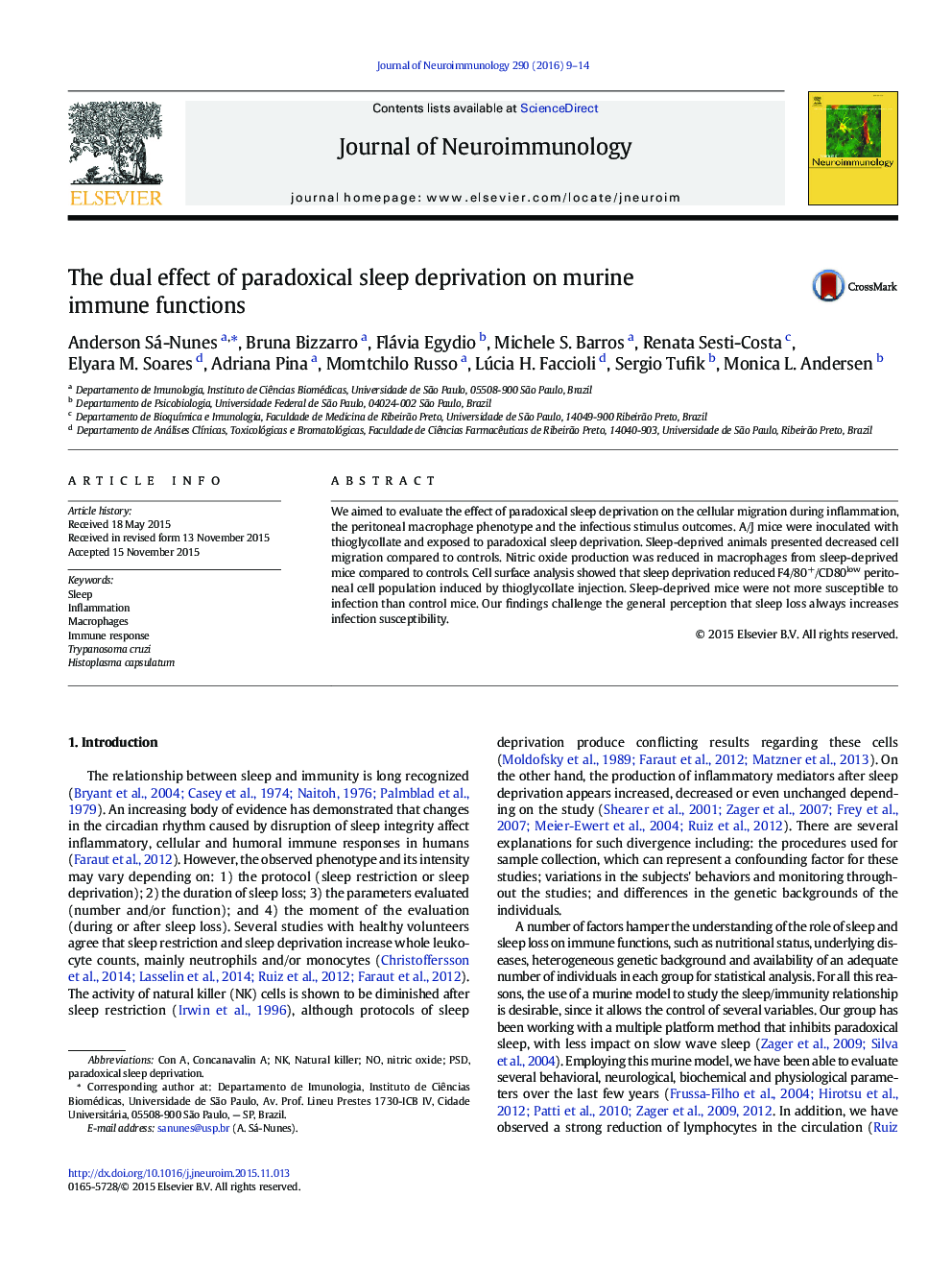| Article ID | Journal | Published Year | Pages | File Type |
|---|---|---|---|---|
| 6020073 | Journal of Neuroimmunology | 2016 | 6 Pages |
â¢Sleep deprivation is able to reduce inflammation-related cell recruitmentâ¢Sleep deprivation improves the resistance to Histoplasma capsulatum infectionâ¢Sleep deprivation affects macrophage responsiveness and phenotype
We aimed to evaluate the effect of paradoxical sleep deprivation on the cellular migration during inflammation, the peritoneal macrophage phenotype and the infectious stimulus outcomes. A/J mice were inoculated with thioglycollate and exposed to paradoxical sleep deprivation. Sleep-deprived animals presented decreased cell migration compared to controls. Nitric oxide production was reduced in macrophages from sleep-deprived mice compared to controls. Cell surface analysis showed that sleep deprivation reduced F4/80+/CD80low peritoneal cell population induced by thioglycollate injection. Sleep-deprived mice were not more susceptible to infection than control mice. Our findings challenge the general perception that sleep loss always increases infection susceptibility.
Graphical abstractDownload high-res image (201KB)Download full-size image
